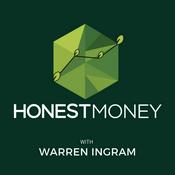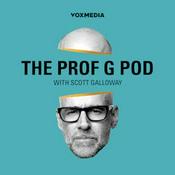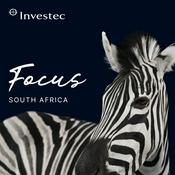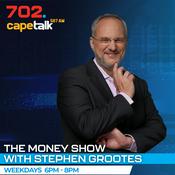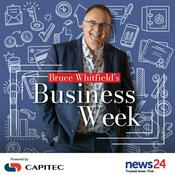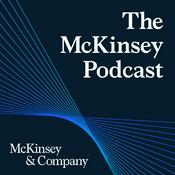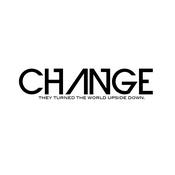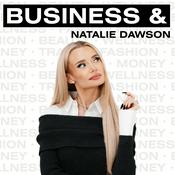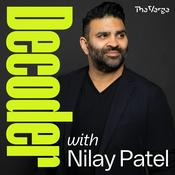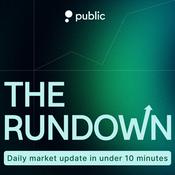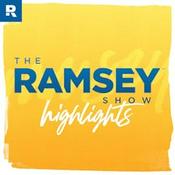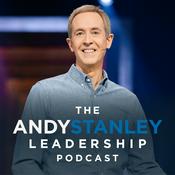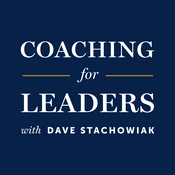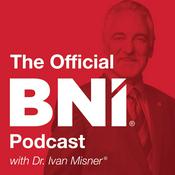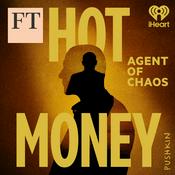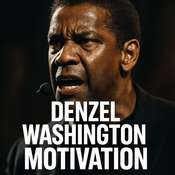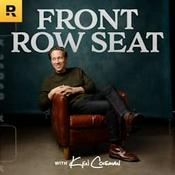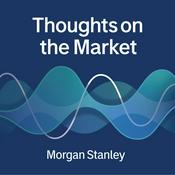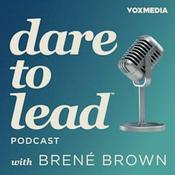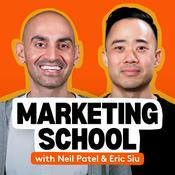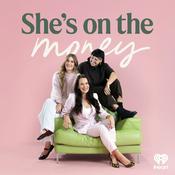247 episodes
- Like many of you, I have listened to every episode of The Fat Wallet Show. I've learned so much over the years, but I find it interesting that some lessons keep repeating. This week, Simon and I spend our last episode together reflecting on lessons we keep on learning. Think of this as the TL;DR version of 245 episodes of this incredible show.
Here's what we know for sure:
Many people who listen to the show think their biggest financial decision is ahead of them when actually they've already made it: being an active participant in your own financial life is the best financial decision you've ever made.
Emergency funds are more important than any other product we ever discuss, but you can't tell because it's boring.
A bad plan is better than no plan.
Time matters more than money. Lesegisha pointed this out using a kota as an example, so I also learned what a kota was.
Fees matter at least as much as returns, if not more. Grant Locke explained why this is when OUTvest introduced its Onefee product. 100 years worth of market data support this.
Because there are so many variables in the market, it's worth being suspicious of people who sell certainty. Cash offers certainty. Fixed interest bonds offer certainty. Aside from that, forget it.
"The best investment" doesn't exist (but bad investments do). Taking positive action, keeping a close eye on things and learning as you go is the only way to do this. Start with what makes you comfortable and build from there. If that means a GIANT emergency fund and one fixed-interest bond in addition to your work RA, that's as good a place to start as any.
The habit of setting money aside matters more than where the money goes.
There is no single right answer. In fact, there are as many ways to get to financial independence as there are people in the world.
ETFs are the market. When ETFs try to beat the market, they are no longer the market.
The harder they shout, the farther I run. Wealth building is either silent and slow, or extremely hard and slow.
Just because someone says they're doing something in the media doesn't mean that's what they're doing.
Subscribe to our RSS feed here.
Subscribe or rate us in iTunes.
Win of the week: Tim
I feel like you are both good friends due to the millions of hours of the Fat Wallet Show I have listened to. I have been there from the beginning when I discovered your show in 2016 during the start of my financial obsession ( don't judge me for not writing, I'm an expert procrastinator).
Although living in Germany since 2018, I have been listening to your show religiously and a lot of what I have learnt is the bedrock of my financial strategies. In October last year, my world changed forever, when in the week of the birth of our first child, my partner and I both got Corona which was a complete nightmare. Now 5 months later, a healthy beautiful boy, 2-3 hours of sleep a night, I am emerging from the haze of these challenging last few months to get back to old habits. I turned on the Fat Wallet Show and was shocked and saddened to hear that you are leaving Kristia.
I just wanted to thank both of you for the amazing job you have done over the last 240 something episodes. You have taught me so much and done it in such a fun and enjoyable way. As a teacher myself, I hope that some of my students could have such an enjoyable learning experience as I have had with the two of you over the last few years.
Ros
It's worth looking into the bottom-of-the-range Discovery card.
The Gold credit card, on its own, is R60pm. If you want, you can add R15pm for Vitality Money. I would recommend adding the Vitality Money for the extra discounts and rewards it gives you. I'm attaching the Discovery brochure that explains the "dynamic discounts" (it's almost impossible to find this on their website, and almost impossible to understand the product without it, which is why I'm attaching it) as well as my spreadsheet showing how much I "make" out of Discovery Health and Card each month.
Some things to note about the spreadsheet (there are two tabs):
All my calculations are based on Diamond Vitality money status. (Also Diamond Vitality Health status, but I'm not sure that has any effect on the cashback calculations). A lower Vitality Money status means lower Vitality Money cashback percentages. I got to Diamond Vitality Money status without really trying - you should be able to as well.
I'm a single person and generally a low spender. About 90% of my food spend is on "Healthy" food at Pick n Pay. I don't spend much on HealthyCare or HealthyGear, so the extra monthly cost of the Platinum credit card, or taking out a Gold transactional account, isn't worth it for the extra percentage discount on HealthyCare or HealthyGear.
I battle to hit the R12500 monthly credit card spend in order to hit the maximum Vitality Money extra cashback percentage on HealthyFood, fuel, and exercise points to miles. And I put *everything* on my card - even a chocolate for R15! Of course I pay it off in full every month.
Even at my low spend levels, I'm netting R450 to R650 per month (and that excludes my gym savings).
Download Ros' Discovery cashback spreadsheet.
Discovery dynamic discounts - If you're new to this money business, access bonds will confuse you. Not only do we use the word "bond" to mean "lending money to the government" and "borrowing money from the bank to buy a house". The access we're talking about has changed over the years. As Simon Brown explains in this week's episode, in the bad old days before the 2008 crash, banks used to give you a little additional spending money when you took out a home loan. Those days are long gone, but the idea prevails.
These days you can't access the interest or principal repayments you've already made. You can only access additional repayments you've made to reduce your interest payments over time. For this reason, many people store their emergency fund in their access bond. It simultaneously reduces the interest you pay by reducing your principal amount outstanding and protects your cash from tax on interest.
In this episode we discuss the possibility of using your access bond to become your own credit provider.
Subscribe to our RSS feed here.
Subscribe or rate us in iTunes.
Gwen
I am in the process of searching for a house and I often hear people saying that they use an "access bond" as an emergency fund. A friend of mine once told me in the past that I should never take up an access Bond because you never finish paying it.
Listening to a lot of podcasts I often hear people saying they use it to put their emergency fund and then they get the benefits to reduce interest. Am finding it difficult to understand how this works, can you kindly explain this to me and how it works practically.
I need to understand how I put money in the access facility, do I deposit it and will the interest reduce automatically?
Win of the week: Katrien
Just a short note to say thank you for the work you've done at Just One Lap. I'm one of the many thousands of people who drive to work on a Monday morning with a big smile to start our week. In addition to learning about personal finances, you guys lift our spirits and give us hope.
Greg
Moving towards pulling the trigger on the investment side so getting there...
TFSA for kids... (trustworthiness aside)
If I want to play catch up with their contributions (or mine) as we are all starting late (12 & 14 for them and 49 for me) I am aware of the 40% tax on over contributions, but surely in the long term their returns will work this off and they will be ahead of the slower sticking to the limit curve?
No.. I have not tried to spreadsheet this yet... My assumption is that the tax is on the input only? - It has always been the philosophy of this show that a good question is more valuable than a good answer. It's incredible what you can learn from a really good question, both about the topic and about the person asking the question.
This week, Frank had an excellent question about moving retirement funds. This question reveals, first and foremost, just how much Frank already knows about the market. It also reveals a thoughtful person who has found a balance between taking calculated risks and doing whatever he can to protect his assets.
In this episode, we address issues around the ethics of retirement product providers, loss aversion and rand cost averaging. All of that, from a single question!
Subscribe to our RSS feed here.
Subscribe or rate us in iTunes.
Frank
I have been contemplating transferring my retirement funds to OUTvest. I have some money with Allan Gray, some with Sygnia and most recently with EasyEquities. Combining all with Outvest will qualify me for the R4,500 fixed fee.
My concern is switching providers too frequently and whether the risk associated with the potential savings is too high. The time out of the market between the exit and the re-entry may result in losses. Is it worth considering? What happens if someone cheaper comes along next year and I'm tempted to switch again? My other concern is the potential manipulation by the provider that I'm transferring away from, the amount that went to Allan Gray from Old Mutual was significantly lower than the balance showing on the investment platform around the time of the transfer.
I had no control over what day the selling of the units happened and had no way of verifying whether the sale actually happened on the day they said. A number of weeks pass from the day you notify a provider of your intention to move away to when the move actually happens.
What prevents them from selling on day two after I notify them, but selecting the lowest unit price in the following days and reporting that to me as the day on which they sold my units? They could sell on 1st of the month for R50, but the transaction is only finalised at the end of the month (31st) - they could then see that the unit price on the 12th was R46 and report to me that my units were sold for R46 - giving them the profit (is this a kind of arbitrage?).
I'm conflicted about whether I should move to Outvest now and whether the benefit would be substantial or whether I should just leave the money where it is to grow and perhaps consider Outvest the next time I change jobs. With the bulk being in a Preservation Fund, what are the considerations I should take into account when combining it into my RA?
Sygnia had allowed me, at the time, to change the allocation of my provident fund to 75% SYGWD (MSCI World ETF) and 25% SYGP (Global Property ETF). My concern is that with the uncertainty around the changes, the online platform is now reporting that my investment is not reg 28 compliant. What are the risks? Whose responsibility is it to ensure that the provident fund is compliant (me or Sygnia). What happens in reg 28 compliant providence where there is "drift" in allocation (ie I may have had the correct percentage in equities during January, but price changes in asset classes may have resulted in "drift" where the asset value in that class is now outside the allowed percentage?)
In a previous episode Simon briefly mentioned that there may be scope to use available funds from a bond to invest in the market for returns that neat the interest. My current bond interest rate is 6.55% and I have a substantial amount available in the access bond portion. Could you discuss whether I should use those funds to buy ASHEQF? Am I correct in stating that 6.55% per annum is 0.55% per month? My logic says that as long as ASHEQF returns more than 6.55% per annum I should get out ahead. Thoughts?
Win of the week: Shumi
I am 33 years old, single, female with no dependents. I am not a cat, engineer or doctor. I studied Philosophy, Politics and Economics and ended up in finance but not the math side. I found the Fat Wallet in late 2018 after a financial awakening when I found FIRE and Stealthy's blog. Since then my net worth has grown from -R660 000 in June 2018 (I bought a house before I found FIRE 😓) to over half a million in March 2021 (technically over a million if you include the house but I know that although it is an asset it is not an investment). This is attributable to two main factors, my standard of living remained the same as my income increased allowing me to save and invest the difference.
Kristia once posted a hand written note of the Fat Wallet manifesto on twitter and I followed it to the letter. I live on less than 40% of my income, no debt except for my bond, have a 12 month emergency fund, max out my RA and TFSA and also have ETFs in a local and offshore discretionary accounts. I also save and invest any increases and bonuses (Simon's rule of thirds really helped me). So far I've stayed away from bitcoin, bees, gold and Tesla. Precovid travel was my money dial and I happily spent on frugal and extravagant local and international trips. Most of that has been diverted to chuckles & diy during the pandemic. This simple plan has worked well for me.
My income is relatively high (2 promotions in 3 years) so a lot of this success is because I earn enough to have a gap between what I make and what I spend. But without the Fat Wallet, lifestyle inflation would have creeped in and I wouldn't have known how to grow my money. From the outside nothing much has changed, I live in the same house and drive the same car (pushing 8 years now) as when I was in debt but I sleep much better knowing I have a solid financial base.
Thank you for all you do. Good luck on your new journey Kristia. Simon I listen to you 8 times a week so I will still be learning.
Feedback from Kris about contributing to a bond vs investing in the market
A good approach could be to use asset allocation.
E. G. If you already have a lot (or some) home equity but now want to start investing then why not aim for a certain ratio e. G. 50% each. So over time contribute to each such that you reach equal amounts in home loan equity as in stock market investments. Once you reach this equilibrium just maintain it going forward. It's diversification.
Itshekeng
I was swamped with debts and could not repay them all at the same time. I sold my house and have a lump sum which I would like to invest. On the other hand, I wish I could use some of it to reduce my debt repayment period. I am still working and would really like to get out of debt and be able to save up for a house and a car and retirement, and take out policies for my child.
What is most important and where to invest with good returns over 5 years? - A conversation on our excellent community group had me wondering why we've never dedicated a whole Fat Wallet to finding passive income streams outside of investments. It took about ten minutes for the realisation to dawn on me: true passive income is a myth.
We often talk about side-hustles. "Hustle" is the operative word there, because we're describing a second job. The appeal of working in your free time is the diversification of income streams and the potential to eventually earn your monthly income doing something you enjoy instead of your day job.
True passive income means you work at nothing but capital for the initial investment. It's important to remember capital can be physical or it can refer to your time. We discuss the potential of online businesses and the enormous amount of time required to get any sort of momentum. We talk about rental income, having an Uber fleet and selling products online and in each case talk about the work required to truly make it work.
Subscribe to our RSS feed here.
Subscribe or rate us in iTunes.
Win of the week: Kay
I stumbled across your podcast Sep 2019, via Sam Beckbessinger's book. I binged listened to all the episodes in a rather short space of time.
I got a much clearer understanding of TFSA, and opened one immediately. My fear of stocks (which was more a lack of understanding) disappeared.
Took my ostrich head out of the ground, and looked at my liberty RA. Ouch. That got shifted out, can't say immediately, but Liberty did eventually let me go.
I started pumping money into an emergency fund. Life had taken an interesting turn in early 2019, and my income was more than halved. Come 2020 I had an emergency fund, which has saved my ass (or more like my animal's asses....pet insurance is definitely a future consideration with younger animals ) more times than I thought I could possibly ever need to use an emergency fund.
If I had not discovered your podcast before 2020, I shudder to think what may have been in 2020.
Once again, thank you for all that the two of you have done. It really has been life changing.
I have a feeling once I finally retire, and I am able to still drink a fairly decent whiskey, I will think back to the early days of The Fat Wallet Show, and think thank goodness I discovered the podcast.
On a side note, does Simon get to keep all the future donations that will be sent once we all have it made?
Inge
I currently hold Ashburton 1200 and Satrix top 40. Now, with SATRIX I am guessing I am not taxed on dividends as these are SA stocks and fall under SARS, so they can't shaft me here.
But do I pay tax on dividends and gains in the Ashburton 1200? Is there any benefit to holding it in my TFSA or should it just be a discretionary investment?
Should do a 50% , 50% split between these two? OR because I have a local RA, do I max my offshore in the TFSA and do a 70 ash / 30 satrix split?
I am torn between putting extra into my bond to reduce the term (and amount of compound interest paid) vs putting money into my RA/TFSA for the future. Currently my bond is also my emergency and travel savings fund.
My current strategy is-
RA: maintain and only do standard annual increase.
Bond: pay in an extra 50%,
I take about the same amount I put into my bond and put 2/3 into a TFSA and 1/3 into an FNB share account.
Do I pump up that bond and get it done, or maintain the current strategy?
Do you have any suggestions of what calculator to use to show someone the value of time in the market?
Una
I began a new job in early December and had my daughter in early February. While I understand the value of getting medical when you have a child, I signed up for health insurance instead of medical aid because I was in a hurry. I'm not sure if I should cancel and get medical aid; could you please advise which of the two choices is the best?
Tim
She owns her home and should downsize. She likes having 2.5 vacant bedrooms for myself and my brothers.. despite 2 of us being married.
In 2014, we started buying apartments in Joburg, she owns a 1/3 of the company that owns 4 units (1.5 still bonded).
She is a member of the GEPF
She has minimal discretionary investments (Satrix etc.) and I started her on a TFSA last year.
My stepdad lost all his pension funding assets in his divorce. He's a (retired) teacher with a (small) preservation fund (and a TFSA from this year).
My mom currently has R15k per month cash to invest. My thinking is smash R6k into their two TFSAs and convert the balance to USD through EE/Shyft and buy VT through EE or TD Ameritrade.
She will need to leave that money for at least 5 years. She has a large amount of property and Reg28 exposure relative to offshore/ETFs.
Is there anything else you would suggest looking into?
I've heard you say a few times that dividends within an RA/preservation and a TFSA are tax free whilst in the vehicle. Apart from the total return ETF complication, how does the company paying the dividend know that it is going into one of these vehicles and, therefore, doesn't deduct the tax?
Christiaan
It might seem that we have some tax relief, but when electricity prices are going up 15% and the fuel levy is increasing by 27c/l, does it just not mean indirect taxes are just diminishing any perceived gains?
Are we being tricked into feeling good, but when you look at your personal cash-flow you realise there is not more left? When electricity and fuel go up, would it not mean we have increased food prices, inflation in the general economy and will pay more for goods and services in general? When that happens, are we also likely to see interest rates going up?
Mo
My goal over the last year was to get an apartment and pay it off quickly to avoid big interest payments. I have already set aside an emergency fund and I am now paying extra into the bond to get it paid off hopefully under seven years.
Having discovered the wonders of TFSAs, ETFs, etc. I am now torn as to how to go about spreading my money. I am struggling to find a good ratio between the additional bond payments and an investment account (ETF invested account, not TFSA).
I like the idea of having the apartment paid off but I am worried that I am putting too much emphasis on reducing the time period of the bond and at the same time losing out of potential growth of ETFs. I was previously putting all extra cash into the bond account, but am now looking at putting 2/3rds into the bond and 1/3rd into investments.
I am still young and doing what I can to live frugally and not stuff up being in a good position. - Many people take their first wobbly steps into the financial world because they understand money is meant to do something. What exactly that "something" is, is often left to someone else to figure out. However, once they start learning about the financial environment for themselves they realise there might be products better suited to their needs.
Moving a lump sum away from a provider you've trusted for a few years is a daunting process. Even if your reasons are sound, it's not an easy decision to make.
In honour of the brand new tax year, we spend this week's episode helping Carmen decide what she should do with her existing high-cost retirement product. We hope the discussion will help you decide what to do with an investment product that no longer suits you.
We apologise for the ear worm.
This week's show is also the last of our shows sponsored by OUTvest. We are deeply grateful to them for their support.
Also remember tomorrow at 11:00, Bobby from AJM Tax will talk about how the tax changes announced last week will affect your pocket. Join the Facebook community group to watch it live and ask your questions.
Subscribe to our RSS feed here.
Subscribe or rate us in iTunes.
Carmen
Do I keep pumping money into my high cost actively managed RA at Old Mutual (I like the idea of money going somewhere that I do not think about)?
Do I transfer the current balance to my low cost EE and let it sit there and grow (along with the increased monthly premium plan)...but then continue the R3500 contribution to OM (which will likely have even higher fees because now my base amount is R0).
Do I reduce my RA contribution to Old Mutual to the minimum R500 per month (so that I don't incur an "admin fee") and increase the RA amount to my EE RA immediately by R3000 per month?
Do I get outta dodge re: Old Mutual RA and move alles completely?
Ancillary reasons for sticking with an actively managed fund at a big investment house are: not to have all my eggs in the EasyEquities basket; my personal risk insurance side is sitting with Old Mutual (disability, illness etc) and my OM is invested in other items than my EE portfolio (bit of diversification); keep contributing to one RA up to age 60 and only pull from it from 65...and other RA only pull from later.
Win of the week: Nalisa
I started this email about four months ago, and listening to this week's podcast made me decide to get it done. Especially when pet expenses came up!
To clarify, I'm a vet and best you believe my creatures are on insurance! Yes, I'm a vet and proper medical care is still expensive for me! Akina, my eldest, decided to go ahead and twist her spleen (after hours, fucking typical) and the resulting bill came to about R20 000, and the medical aid paid me back in under a week.
Even if it wasn't for that incident the peace of mind we get from it is worth every cent. But do your research and (I can't stress this enough) read the fine print! Know what they cover and what they exclude, and especially look at their limits (per claim and annual limits). They're still insurers, they're still trying to screw you.
My fiancé and I were discussing how one could become completely self insured.
We only insure our cars, our home and our pets. We both have life insurance ( to cover the bond), medical aid and I have income protection.
We've always agreed that our home contents (aside from his laptop) are considered self-insured because our quote for insurance was exorbitant.
In an ideal scenario, we'd need to have enough saved to be able to replace everything with cash, and have about R50k for the animals. The figure gets big really quickly.
The main concern would be that you'd have such a huge pile that needs to be fairly liquid and would earn very little (but still more than handing it over to someone else every month). Are there any strategies for self insurance? Or is it actually a silly goal and we should resign ourselves to gamble on bad luck against insurance companies, while trying to save whatever else is left?
Solly
I really like how you break down things for us that are so complex and make it consumable. I started listening to Just one lap last year around February and I have gained life changing insight. I just thought my first email to Just one lap is to say thank you so much!...for all the effort, the laughter and swearing😂, but most importantly for sharing the financial concepts in the simplest way that we all can understand. I always had an interest in finance, but you guys made me love it.
Petrus
It feels like I am losing a long time friend even though we have never met. I still remember some of our exchanges very well and also how ridiculously simple some of the things was that I deemed necessary to send you an email for (buy a cellphone or take it on contract 🤦🏼). I will admit, I might have had a finance nerd crush on you at some point.
A lot has changed since the first email I sent you from a train somewhere between Regensburg and Munich while still working and living in South Africa. Since then I,
- cleared all my debt
- started investing
- got married
- moved to Germany
- figured out investing in Germany
- learnt German
- close to hitting €150k net worth in 3 years (after starting with 0€).
- just bought a house in Munich. Funny how all us finance or FI nerds say buying is not a good investment, yet we all do it. My transfer fees is more than the cost of my house in South Africa. 😭
I say these things not to be windgat, but to document the influence you had on my life. I never really knew how to manage and grow my net worth until I started to listen to The Fat Wallet Show. It gave me confidence to take charge and I am blown away by what was possible. You have probably made and influenced many future multi-millionaires.
Ryan
I had twin boys in July last year. I opened them TFSA days after they were born and put R36k into each account. I remember Simon saying if you max your child's TFSA at birth and leave it, by the time they turn 65 they will have enough to retire. This is the time horizon I am looking at for them.
I bought SYG500 for one and SYGWD for the other. They have both done very nicely.
With 1 March approaching, I have been thinking of buying SYGEU for both of them. What are your thoughts? My other option would be the Ashburton1200? I know Simon will probably say I need to add some local exposure but with the current rand strength I think it's a good idea to get as much offshore exposure as possible?
I have been contributing to my own TFSA into an RMB fixed deposit for the past 6 years. I know I need to move it into an ETF based account which I have applied to do (EasyEquities). I am 34 years old with no plans on using these funds for at least the next 30 years. What would your and Simon's suggestion be in terms of the ETF's to split this into?
Keith
I enjoy listening to your podcast. Even though I'm in the USA I get very good investment advice from you guys. I am an amateur at best and a lot of the things you discuss are unknown to me. Do you have anything that starts with the basics on up?
Jennifer
Most of my closest family and friends live in other parts of the world. I love South Africa and don't want to leave but it makes me sad that I won't be involved in my family and friends lives like I would like to be and I'm not sure whether I'm in SA to stay.
Unfortunately I'm not sure where I will end up - either the uk (I have a british passport) or Australia. What do you advise I do with my investments? I don't want to contribute more to a retirement annuity (other than what I contribute through work) because I don't know whether I will be here for retirement... but who knows - there is also a good chance I might be. Because I'm so uncertain I don't know what the best thing to do with my money is.
I'm struggling to understand market makers. I've heard people say ETFs can turn out more expensive than unit trusts due to the spread between the bid and ask price. I understand what the spread is and I understand that the market maker can redeem and create units in order to create liquidity for the ETF... but who is the market maker and why can the spread be massive at some parts of the day? How do they determine the ask and buy prices?
I recently watched one of the JSE power hours where Nerina Visser went through all the costs associated with investments. It was so informative but made me think a bit about my EasyEquities investments. The webinar seemed to say that for every investment I make I am paying JSE fees and levies and these appear to have a minimum fee. I can't seem to find these on EasyEquities though. Essentially my question is - Does it cost me more if I invested R10,000 split into four R2,500 transactions vs a lump sum? The only fee that I can find that could potentially be fixed is the STRATE fee but EasyEquities appears to not charge a minimum fee here either.
My second question is to do with total returns funds in a TFSA account. I know this has been spoken about a lot but I'm still a bit confused. I like the Satrix MSCI World more than the Ashburton 1200 for some reason but the tax issue surrounding the total returns worries me. I understood that you couldn't avoid dividends tax charged by the foreign entities anyway... So why does it matter if an offshore eft is a total returns within a TFSA?
Louise
I love ETFs (easy to understand and invest in myself), but I also like me some Unit Trusts (UTs). What I however find daunting, is the long alphabet list of UT classes. Thus far this has forced me to go via a financial adviser, when buying UTs. Did I mention that I am allergic to financial advisers and their high fees? And then sometimes the adviser afterwards willy-nilly moves me into a different class of the same UT, and I wonder when this is in my favour from a fee perspective or not.
The classes include A, A1, A2, A3, B, B1, B2, B3, B4, B6, 3B1, C, C1, D, E, F, G, H, O, P, R, etc., etc.
(Let's first just stick to local UTs - offshore UTs is a kettle of fish for another day.)
I've figured some of them out, e.g. the regulated class R, those that are available only for Institutional Investors and those that are for Retail Investors. Those that come with a with/without adviser fee, the clean classes etc. ASISA publishes quarterly spreadsheets that help a bit, but not much.
I've also learnt the following:
There is no standardisation in terms of the naming of the different fee classes between the different management companies, with the only exception being the "R class" (deregulated in June 1998).
Some "clean classes" are cleaner than others.
FSB Board Notice 92 of 2014 specifies that UT management companies are required to publish the most expensive class that is available to a retail investor. Well, that's good in that the available MDDs tell me how bad the fees can get. But it is bad in that I want the cheapest class that I can get into, which is not as well published on the internet.
I also read a Moneyweb article (by a PSG Adviser, nogal), where the guy shows how much better performance you get by just switching all your UTs to the cheapest classes, which makes me green with envy and hot under the collar.
Where is the FSCA in all of this? They are responsible for consumer education in this regard (non-existing) and also responsible for regulating the industry in a manner that creates standardisation, consistency and transparency, to allay the frustration and confusion experienced by poor little retail investors like me.
"Power to the people", I say!
Until such time as the FSCA steps up, can you, Kristia and Simon, please help me find my way through this maze that is UT fund classes? I understand MDDs, TER & TIC, but per Board Notice 92 not all MDDs are published.
More Business podcasts
Trending Business podcasts
About The Fat Wallet Show from Just One Lap
The Fat Wallet Show is a show about questions. It's about admitting that we don't know everything, but that we're willing to learn. Most of all, it's about understanding as much as we can to make us all better investors.
Phrases like, "I'm not sure" or, "Let me look that up and get back to you" or, "I don't know" don't exist in the financial services industry. If you ever had a financial question you were too embarrassed to ask, you know what we're talking about. In this business, appearances matter, and nobody wants to seem like they don't know how things work or what the outlook is for the buchu industry. It's easy to excuse that little vanity, except that people in the investment industry are meant to service investors - people like you and me who need to figure out what to do with our money.
There's no such thing as a stupid question in this show. If you have unanswered financial questions, this is your opportunity to have them answered in a way that even I can understand. Pop them to us at [email protected].
Podcast websiteListen to The Fat Wallet Show from Just One Lap, A Bit of Optimism and many other podcasts from around the world with the radio.net app
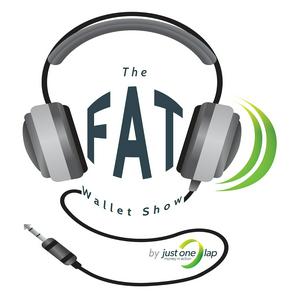
Get the free radio.net app
- Stations and podcasts to bookmark
- Stream via Wi-Fi or Bluetooth
- Supports Carplay & Android Auto
- Many other app features
Get the free radio.net app
- Stations and podcasts to bookmark
- Stream via Wi-Fi or Bluetooth
- Supports Carplay & Android Auto
- Many other app features


The Fat Wallet Show from Just One Lap
Scan code,
download the app,
start listening.
download the app,
start listening.


